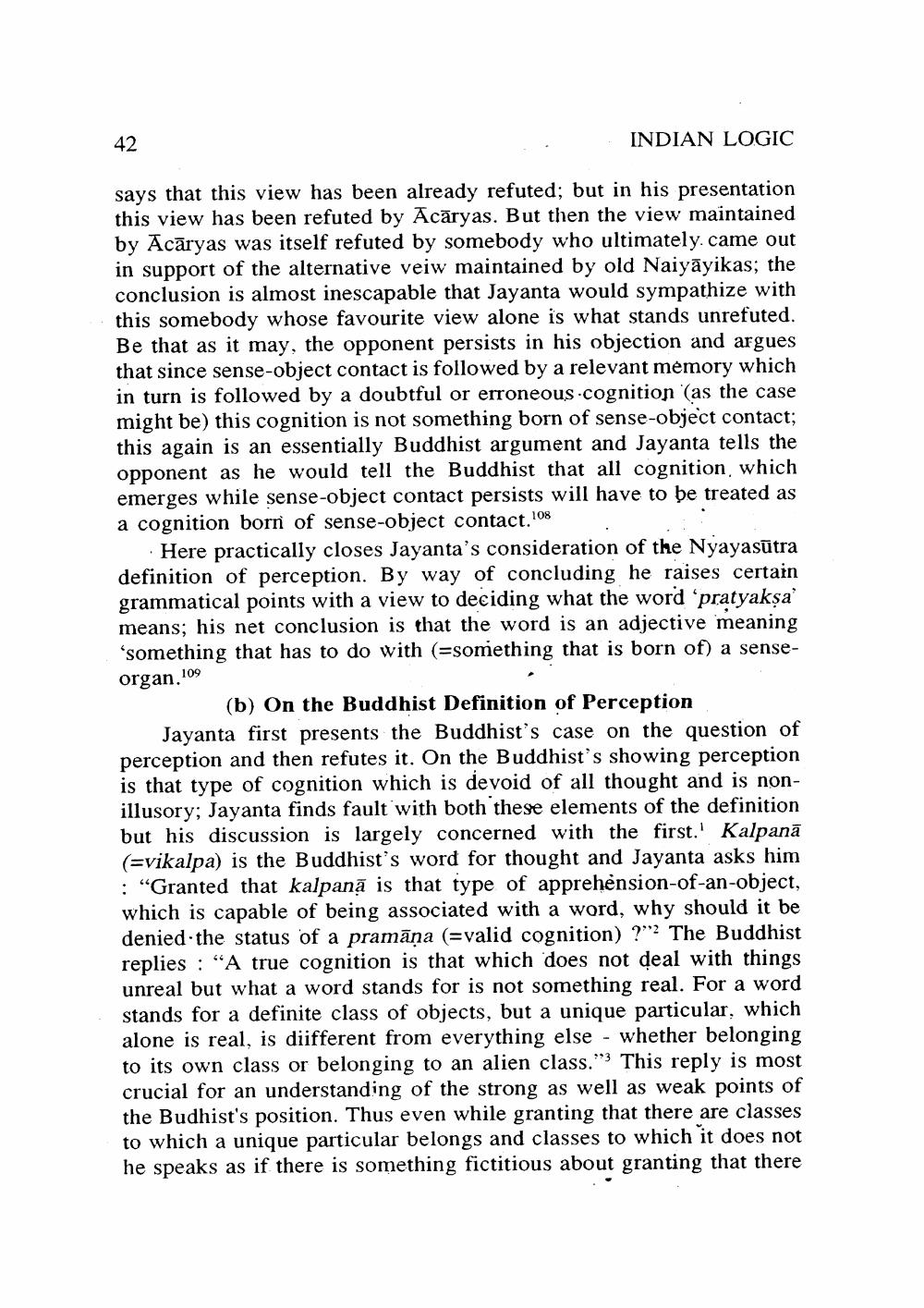________________
INDIAN LOGIC
says that this view has been already refuted; but in his presentation this view has been refuted by Acāryas. But then the view maintained by Ācāryas was itself refuted by somebody who ultimately came out in support of the alternative veiw maintained by old Naiyāyikas; the conclusion is almost inescapable that Jayanta would sympathize with this somebody whose favourite view alone is what stands unrefuted. Be that as it may, the opponent persists in his objection and argues that since sense-object contact is followed by a relevant memory which in turn is followed by a doubtful or erroneous cognition (as the case might be) this cognition is not something born of sense-object contact; this again is an essentially Buddhist argument and Jayanta tells the opponent as he would tell the Buddhist that all cognition, which emerges while sense-object contact persists will have to be treated as a cognition born of sense-object contact. 108
Here practically closes Jayanta's consideration of the Nyayasūtra definition of perception. By way of concluding he raises certain grammatical points with a view to deciding what the word 'pratyakşa' means; his net conclusion is that the word is an adjective meaning 'something that has to do with (=something that is born of) a senseorgan.109
(b) On the Buddhist Definition of Perception Jayanta first presents the Buddhist's case on the question of perception and then refutes it. On the Buddhist's showing perception is that type of cognition which is devoid of all thought and is nonillusory; Jayanta finds fault with both these elements of the definition but his discussion is largely concerned with the first.! Kalpanā (=vikalpa) is the Buddhist's word for thought and Jayanta asks him : “Granted that kalpanā is that type of apprehension-of-an-object, which is capable of being associated with a word, why should it be denied the status of a pramāna (=valid cognition) ?" The Buddhist replies : "A true cognition is that which does not deal with things unreal but what a word stands for is not something real. For a word stands for a definite class of objects, but a unique particular, which alone is real, is diifferent from everything else - whether belonging to its own class or belonging to an alien class." This reply is most crucial for an understanding of the strong as well as weak points of the Budhist's position. Thus even while granting that there are classes to which a unique particular belongs and classes to which it does not he speaks as if there is something fictitious about granting that there




